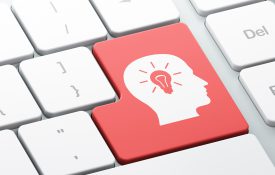-
New Research From Psychological Science
Read about the latest research from Psychological Science: Task Relevance Induces Momentary Changes in the Functional Visual Field During Reading Johanna K. Kaakinen and Jukka Hyönä Research has shown that people zoom in on task-relevant information in text. The authors examined whether a person's functional visual field changes as a function of task relevance by tracking participants' eye movements as they read a large piece of text about different countries. Before reading, participants were instructed to imagine they were going to move to one of the countries described in the text.
-

Detecting Sickness By Smell
Humans are able to smell sickness in someone whose immune system is highly active, a study shows.
-

Students Remember More With Personalized Review, Even After Classes End
A computer-based individualized study schedule boosted students’ recall on subsequent tests.
-
New Research From Psychological Science
Read about the latest research published in Psychological Science: Loss Attention in a Dual-Task Setting Eldad Yechiam and Guy Hochman Can losses actually make you perform better? The authors tested the hypothesis known as the loss-attention model, in which losses draw attention to the current task and, as a result, increase sensitivity to the task's incentive structure. Participants performed a decision-making task involving gains or losses. The task was performed alone (single-task condition) or with a secondary task (dual-task condition).
-
New Research From Psychological Science
Read about the latest research published in Psychological Science: Multiple Levels of Bilingual Language Control: Evidence From Language Intrusions in Reading Aloud Tamar H. Gollan, Elizabeth R. Schotter, Joanne Gomez, Mayra Murillo, and Keith Rayner Bilingual individuals rarely make cross-language intrusion errors (i.e., unintentional language switches), which makes this phenomenon difficult to study. The authors examined how bilinguals control their language selection by examining the occurrence of these errors in mixed-language paragraphs.
-

When Charitable Acts Are ‘Tainted’ by Personal Gain
We tend to perceive a person’s charitable efforts as less moral if the do-gooder reaps a reward from the effort, according to new research. This phenomenon — which researchers call the “tainted-altruism effect” — suggests

